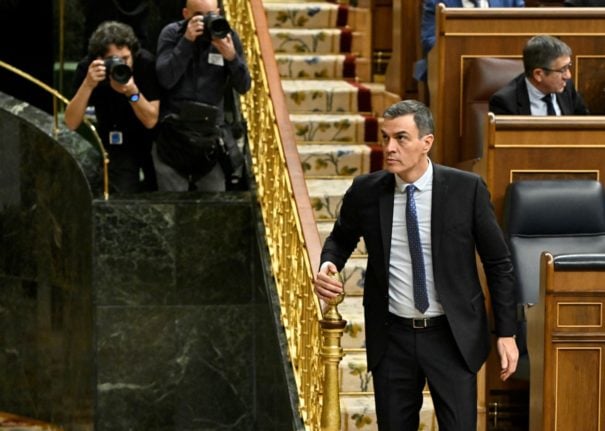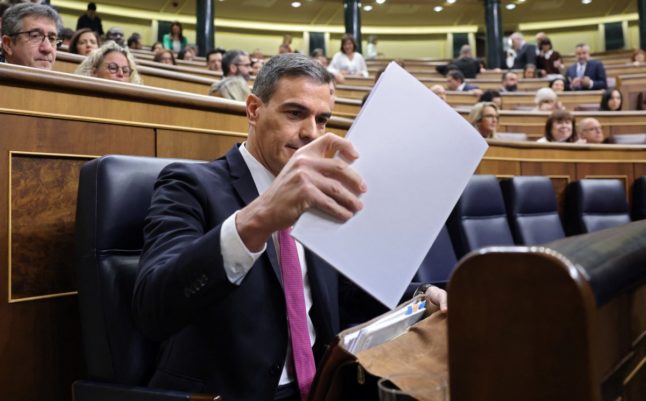The 52-year-old Socialist leader, who last Wednesday retreated from public life to decide whether to quit, chaired a weekly cabinet meeting after being interviewed by news radio Cadena Ser.
He told the station he had a “hard time” during the five days he spent mulling his future but added he was now determined to complete his new four-year term which began in November, and even go beyond that “if the Spanish people want him to”.
In office since 2018, Sánchez on Wednesday dropped a political bombshell saying he would consider resignation after a court confirmed a preliminary probe into his wife Begoña Gómez for suspected influence peddling and corruption which he denounced as part of a campaign of political harassment by the right.
The court made the move in response to a complaint filed by anti-graft NGO linked to the far right which has presented a litany of unsuccessful lawsuits against politicians in the past.
The group, Manos Limpias (Clean Hands) has admitted its complaint was based on media reports whose veracity was unclear and the public prosecutor’s office on Thursday asked that the investigation into Gómez be closed.
“I’m another victim of a well-designed strategy and well-oiled smearing machinery,” Sánchez told journalist Àngels Barceló.
“I have slept very little and I have eaten less.”
In a sombre televised address on Monday, Sánchez announced he had “decided to stay” on as prime minister and would lead a fight back against “toxic” politics and the “democratic renewal which our country needs”.
Sánchez, however, has not said what steps he would take, although he did tell Cadena Ser that strengthening the law that regulates public financing of the media could clip the wings of talk shows and news sites that he referred to as “pseudo media”.
“The time to reflect is over. Now is the time to adopt concrete policies,” Yolanda Díaz, the head of hard-left party Sumar, Sánchez’s junior coalition partners, wrote on X, formerly Twitter.
Sánchez’s right-wing critics have dismissed his threat to quit as an attempt to rally his supporters and mocked his claim to be defending democracy.
“People have understandably felt manipulated and insulted by this behaviour,” said the head of the main opposition Popular Party (PP), Alberto Núñez Feijóo, vowing to stage fresh street demonstrations against Sánchez’s government.



 Please whitelist us to continue reading.
Please whitelist us to continue reading.
Member comments